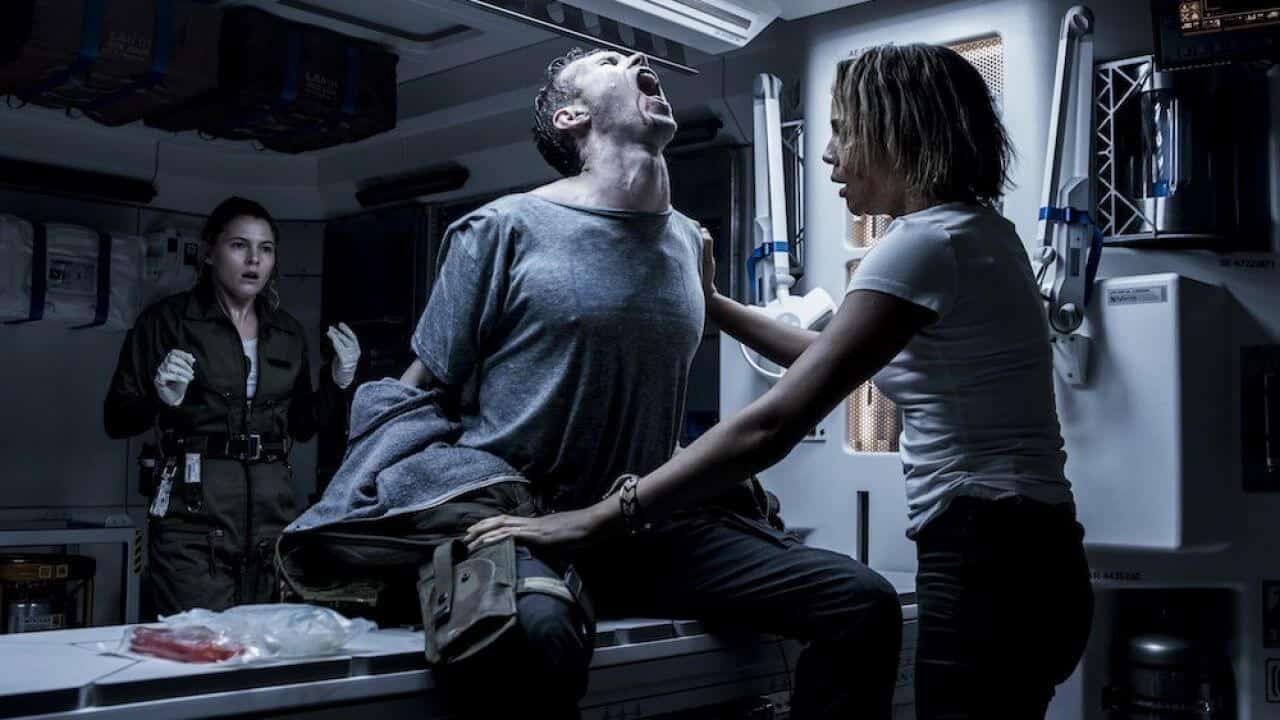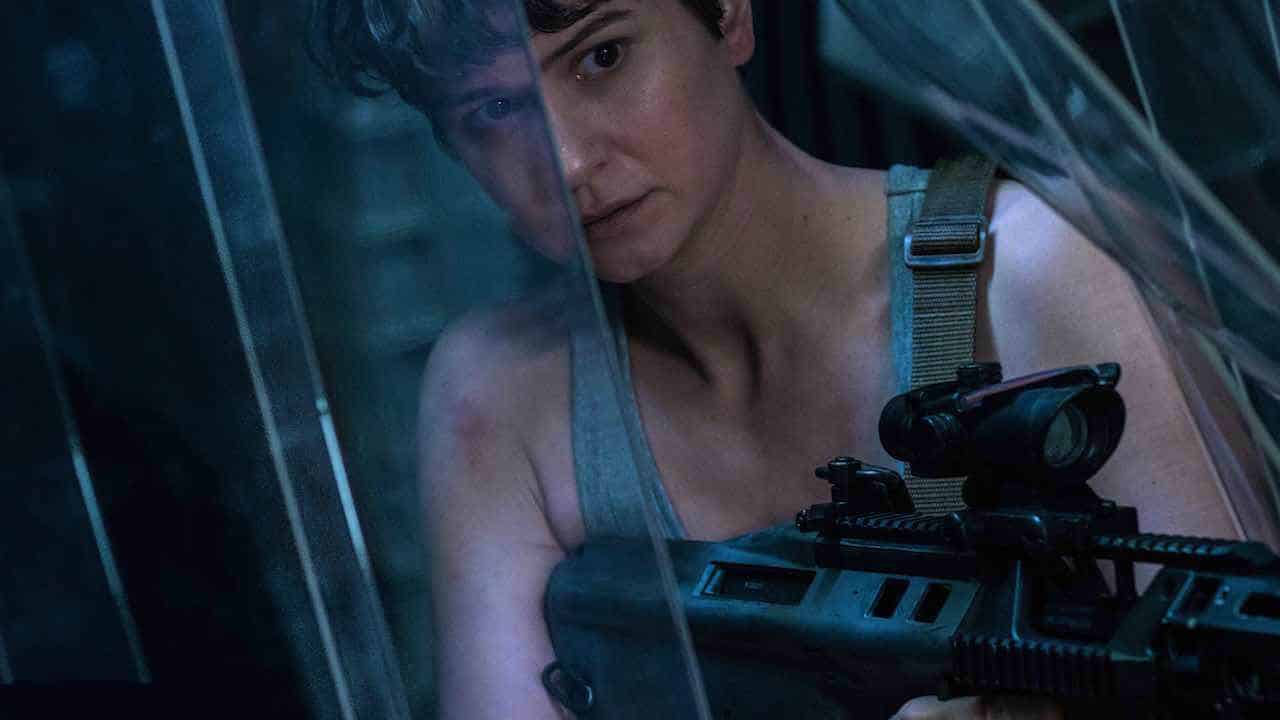[Note: this review contains spoilers]
The ”Alien” movie franchise is a lot like an ocean liner. By that I mean it’s foolish to expect a large ship like that to be nimble and change course quickly while at sea. With ”Prometheus,” a more apt metaphor would be comparing the film to The Titanic — with the screenplay as the iceberg that sunk it. It was a visually stunning picture where all the technical elements needed to express the grandiosity of the film was executed with the highest levels of expertise by the production crew. Unfortunately, the screenplay eclipsed all that hard work with a story of supposedly smart people who got dumber as the story progressed.
I wanted to like ”Prometheus” because I bought the hype that if Ridley Scott was at the helm as director, he was the last best hope of righting a ship that had gone way off course by the third and fourth film in the franchise — along with the two ”Alien vs Predator” films. When a sequel to ”Prometheus” was announced, and Scott would once again sit in the director’s chair, I was more than a little dubious about the series getting any better. Fearing that Damon Lindelof would once again write a screenplay to another laughable episode of ”Dumb People in Space,” I was close to bowing out of watching ”Alien: Covenant.” Perhaps inertia got the better of me, but I did plunk down cash on the barrelhead (okay, cash was actually plunked down at the local cineplex box office) and went in expecting the worst. To my surprise, ”Alien: Covenant” is a much better film than its predecessor. By no means does it hold a candle to ”Alien” or ”Aliens,” but the film does have a more interesting story that, alas, doesn’t advance the larger narrative arc sketched out in ”Prometheus.”
If ”Prometheus” was about the search for humanity’s creators, ”Alien: Covenant” is about space pioneers who accidentally encounter a megalomaniacal android on a remote planet. The crew of the spaceship Covenant aren’t exclusively scientists, nor are they deep space miners, or even military types looking to kill an army of xenomorphs. No, these characters have a kind of wagon train spirit as they journey to their new home on Origae-6 — a planet that’s presumably been mapped out by probes and deemed ready for colonization. It’s only because of two random events (i.e., a solar flare and an accidental interception of a transmission) does the crew change direction to check out the source of the signal.
What the crew finds is a derelict spaceship, dog tags, and picture of Dr. Elizabeth Shaw — one of the lead scientists of the doomed ship Prometheus. Why is she on this planet? Well, that’s what they hope to find out. Pretty soon, members of the crew start getting sick after dust-like spores get absorbed into a couple of people. Things soon go south after those little spore grow into xenomorphs a la every other ”Alien” movie we’ve seen. We also get to see what became of the only other survivor of the Prometheus: David. He’s been living on this planet for a decade, and in that time, has gone quite insane with visions of being a god to his own creation of aliens. In a way, ”Alien Covenant” is more David’s story than that of the crew of the Covenant. David sees himself as superior to human life since he was activated on Earth. And since he sees himself as superior to humans, he also feels superior to those who created humans (i.e., The Engineers). Turns out, the planet David is on is one that was formally populated with the Engineers — and in a flashback, it’s shown how David was instrumental in their demise.
”Alien: Covenant” tries to do a lot in two hours. There’s plenty of poetic and philosophical talk that references Shelley, Wagner, and Milton while exploring the nature of good and evil, but there’s also the usual chest-bursting thrills we’ve come to expect from an ”Alien” film. However, one glaring element the film elided was something that was hinted at in ”Prometheus:” who are the Engineers and why did they supposedly create — and then want to destroy — humanity? That was the question that should have framed the story of ”Alien: Covenant,” but instead we got a story about a power-hungry android who uses a crew of humans to further his god-like ambitions. This not to say that ”Alien Covenant” fell flat like ”Prometheus.” However, while the story doesn’t advance the Big Narrative in any meaningful way, it more than suggests that David’s vision of reigning in a Hell of his own creation means he sees himself as a fallen angel who, as John Milton wrote in ”Paradise Lost,” is ”self-begot, self-rais’d.” And of course there’s the use of Richard Wagner’s music in the film that signals in a not-so-subtle way that David, like Loge in Wagner’s ”The Rhinegold,” is keen on destroying the gods — so only he and his alien creations remain.








Comments